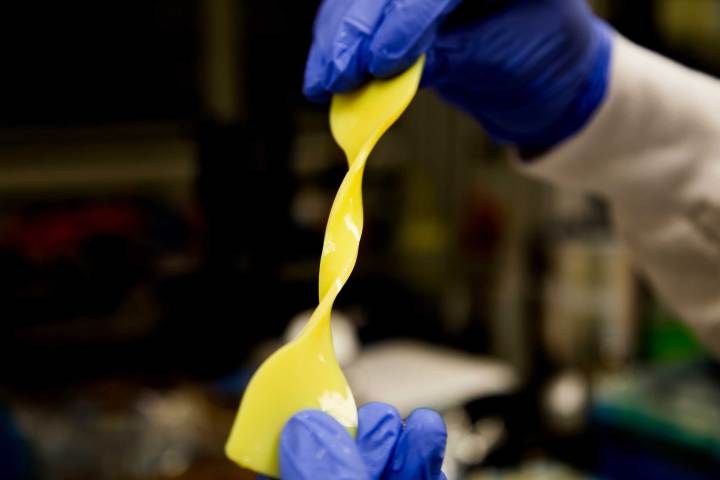
Our natural cartilage is actually comprised of about 80 percent water, a stunning characteristic considering it’s able to withstand some of the most extreme pressures placed on our bodies. “We know that we consist mostly of water — all life does — and yet our bodies have a lot of structural stability,” noted Nicholas Kotov, an engineering professor at the University of Michigan who led the Kevlartilage study. “Understanding cartilage is understanding how life forms can combine properties that are sometimes unthinkable together.”
As it stands, most of today’s synthetic cartilage is “unable to achieve that unlikely combination of strength and water content,” researchers note. This is because most artificial materials that attempt to replicate the physical characteristics of cartilage do not contain adequate amounts of water to transport the necessary nutrients for cells. Hydrogels, meanwhile, have plenty of water incorporated into them, but aren’t strong enough to replace our cartilage.
But the Kevlar-based hydrogel that makes up Kevlartilage is said to combine a network of Kevlar nanofibers with a material found frequently in hydrogel cartilage replacements — PVA. The Kevlar allows for the framework of the artificial cartilage to remain strong, while the PVA keeps water inside the network even when the Kevlartilage is stretched or compressed.
To be fair, we likely won’t see this new cartilage in action for quite some time, as researchers must patent their creation and work alongside medical device companies to actually bring the product to market. But if Kevlartilage works as well in real patients as it has in lab tests, a bum knee may not end your athletic career after all.


